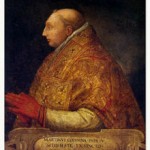Unexpected consequences: expulsion and flight in fifteenth-century Europe.
We live in an age of enforced migration, as war, ethnic cleansing and religious conflict force vast numbers of innocent people to leave their homes and livelihoods and face an uncertain future. In the 1420s the populations of certain parts of Europe faced similar circumstances, and this applied above all to two areas. One was the Czech lands (Bohemia and Moravia), where the Hussite wars led to the expulsion of many Catholic priests and monks by heretics who feared that their victims would ally with the crusaders sent against them by the Pope. The other was the central Balkans. In the 1420s a number of regions stretching all the way from the Black Sea to the Adriatic were already suffering heavy Turkish raids, though these had not reached the level that they would later.
A key source of evidence for this swelling tide of human misery is the registers of Pope Martin V, who received numerous requests for aid from desperate individuals. Often these tales of woe make extraordinary reading. In 1429 the Pope made a grant to two German clerics from Meissen, which bordered Bohemia to the north. The two men, Nicholaus Haberlanth and Johannes Stack, had been expelled by the Hussites, and they had subsisted for three years in Rome, in fact for one year their only option was to work as beasts of burden, lugging sand and stones for the Pope’s rebuilding programme.
One case, however, is remarkable because expulsion had a positive spin-off. An Augustinian hermit called Blasius de Radiniz, almost certainly a Czech, was driven out of Bohemia by the Hussites in 1420, right at the start of the war. For six years he lived in what is now Croatia, and there he found that his knowledge of the tenets of the Christian faith came in very handy. For the people he encountered were scraping a living in the wild, having been driven away from their homes by the Turks. They were committing serious sins without knowing it, because they had no access at all to priests. Brother Blasius learnt their language and did his best to instruct them in Christian ways. On 3 June 1427 Pope Martin acceded to his request that he should be allowed to hear the confessions of these people and absolve them, for a period of five years.
We shouldn’t overestimate the degree of instruction and pastoral care available to contemporaries, including people living hundreds of miles from the border with the Turks. In 1423 the Pope had to deal with a situation in which many of the inhabitants of Corsica and Sardinia had not been baptized by the age of thirty. With no access to priests, they were committing incest and murder. That said, the story of Blasius and his unexpected parishioners forms a fascinating vignette of the effects for ordinary individuals of the conflicts and disruptions that were raging in the Czech and Balkan lands. In this instance there was an unpredictable spin-off, but for most of the refugees the experience of Haberlanth and Stack would have more typical of what they had to endure.
Note: for these instances see Acta Martini V (1417-1431), ed. A.L. Tautu (Rome, 1980), nos 1a, 407, 483.
http://en.wikipedia.org/wiki/Pope_Martin_V



 Subscribe to Norman Housley's posts
Subscribe to Norman Housley's posts
Recent Comments